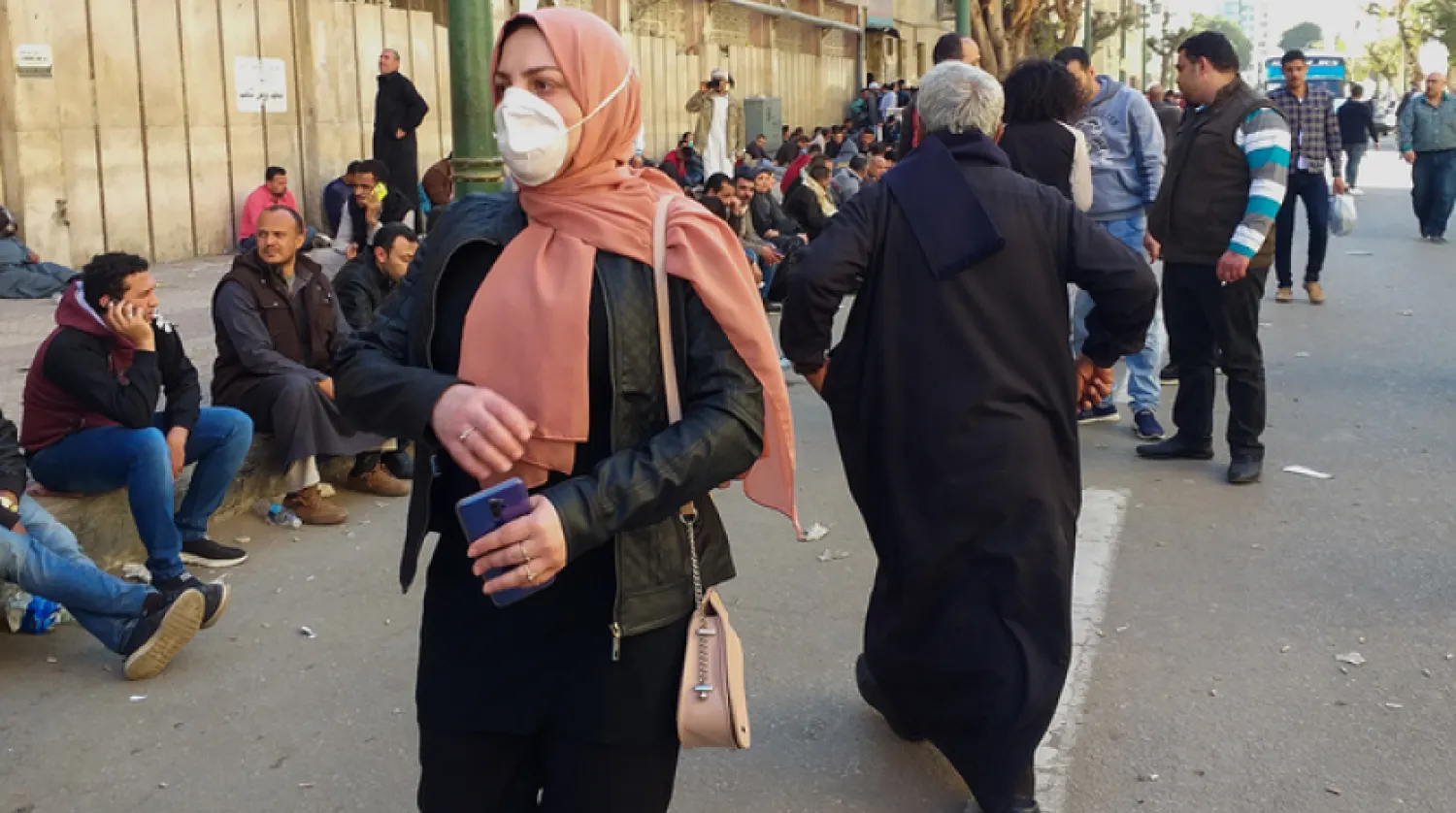Egypt’s Ministry of Endowments (Awqaf) warned citizens against defying the preventive measures in place to help limit the spread of the coronavirus in the country.
The ministry urged all Egyptians to adhere to all precautions announced by the health authorities, namely maintaining social distance and wearing masks at all gatherings, public places and means of transportation.
It emphasized, in a statement Monday, the importance of adhering to the measures at all mosques and keeping all shrines closed during these times.
It stressed that mosques should only be open during prayer times, and Friday sermons must be limited to ten minutes.
The ministry called on all advocacy and supervisory bodies in all directorates to closely monitor citizens' adherence to the measures, warning that any person violating them will be held accountable.
The Health Ministry confirmed 358 new coronavirus cases on Monday, as the country’s total reached 115,541, including 102,596 recoveries. It announced 15 deaths, bringing the fatalities to 6,636 nationwide.
The ministry said it was increasing its readiness all over the country to follow the epidemiological situation first-hand, stressing that it is taking all necessary preventive measures against any viruses or infectious diseases.
In addition, the Minister of Health Hala Zayed announced that the medical teams participating in the "100 Million Healthy Lives" initiative have been trained on approved treatment protocols and various medical equipment.
Over 21.5 million citizens have been tested as part of the initiative launched in 2018, aimed to screen more than 52 million citizens for hepatitis C (HEP. C) and Non-Communicable Disease (NCD).
Zayed explained that safe passages have been designated to guarantee that patients who are COVID-19 positive are not mingling with other patients while entering and exiting hospitals or medical units.
She stressed that all necessary preventive and precautionary measures including social distancing are maintained during the provision of the initiative's services.









